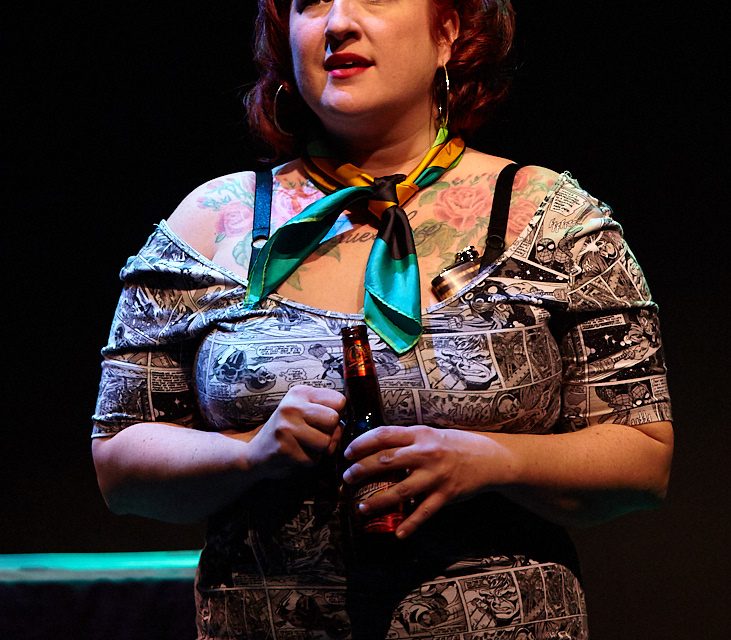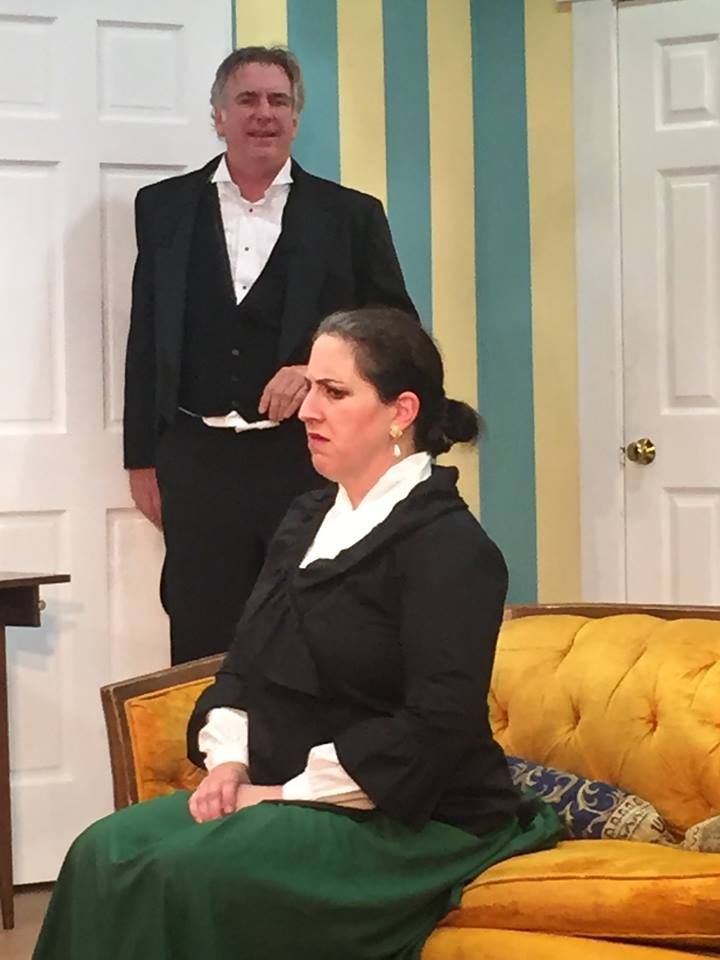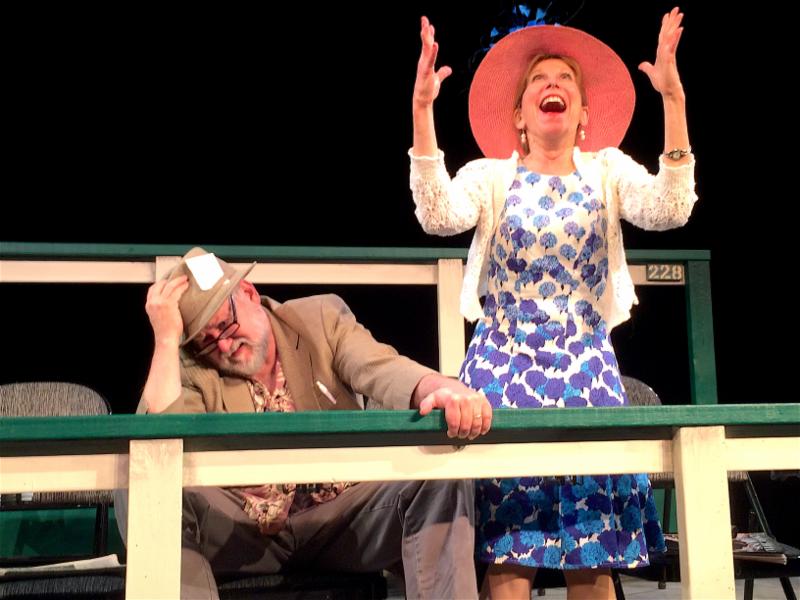Jessica May. Photo: Bill Brymer.
Women Laughing Alone With Salad
By Sheila Callaghan
Directed by J. Ariadne Calvano
Review by Keith Waits
Entire contents are copyright © 2019 by Keith Waits. All rights reserved.
From the title and social media promotions, I had expected Sheila Callaghan’s play to maybe be a light-hearted feminist comedy. I was not at all prepared for the dark, mercurial waters I found myself in. It asks a lot of the audience but rewards you with fresh, cogent theatre that might change the way you think. It seems both totally radical and curiously appropriate that the play was inspired by a popular series of memes. I was not aware of them, but the Internet assures me this is true.
Those memes mock the essential reality of how we are molded, or at least influenced (heavily) by the pervasive mass media culture, and much of what we witness in this story either confirms or rebels against that idea.
Sandy (Dee Smith), Tori (Gracie Taylor), and Meredith (Jessica May) are three women connected in the narrative by one man, Guy (Allie Keel). We first find him watching Meredith dance at a club before he works up the courage to approach her. The alternating interior monologues in this scene are funny and illuminating and quickly establish Callaghan’s taste for alternative characters. Meredith is super confident and unafraid to engage in the kind of frank sexual repartee that merits the “adults only” advisory for this production. It is also important to the play that she is a woman with a full-figure.
Guy lives with Tori, who early on refers to Meredith as “fat”, because Tori has a very different body type, and the casual ease with which the character uses the word is crucial. It is clear that Tori also struggles with an eating disorder.
All of which is somewhat familiar territory for most of us, but Callaghan pushes deep into bold, even outrageous notions of self-perception and delusion that brook no compromise. Sandy’s absurd solution to arrest the aging process on her hands will strike many as wildly preposterous, yet there is also a confessional note that we may all identify within ourselves.
Act one winds up with an inspired ménage a trois with Meredith, Tori, and Guy that is a masterpiece in both the writing and the staging, an insightful revelation of character punctuated by hysterical blackouts.
Act two begins an almost entirely different play; with the cast swapping genders to portray an extended epilogue set 15 years later. Without giving too much away, Dee Smith’s best moments are in these later scenes, ending in a powerful expression of unadulterated male rage, a final, anguished confrontation with the harsh emotional reality of themes too easily taken for granted.
I imagine this was great fun to play, which doesn’t undermine my appreciation for the good and what I imagine was at times difficult work of these four actors. If act two ultimately belongs to Smith, Jessica May fairly owns the first half. Perhaps Ms. May’s absence from the stage makes us fonder of her efforts, but she takes the full measure of Meredith, who is easily the strongest and most assured character, although not without her own susceptibility to the insidious culture of self-loathing for women.
Tori feels more dependent on others, and Guy in particular, and Gracie Taylor builds a quixotic personality full of contradiction, while Guy’s anxious, self-analytical man-child fits Allie Keel like a glove. As right as that feels, I also like the understated manner in which they play Alice, a progressive female advertising executive in act two. While May and Taylor have a blast satirizing male stereotypes, Keel plays Alice as calm, disciplined, and focused on realizing an agenda for change. The men are overgrown adolescents ruled by their emotions in Callaghan’s alternate world, while the women keep their eye on the ball.
I struggled with writing this review, and I still don’t feel like any of this captures the risk or danger of this production. It feels like a play unlike any other, and director J. Ariadne Calvano brings it to life with its entire absurdity intake. There are various manifestations of salad, much of it strewn about, and plenty of human sexuality comically detailed, so we can not accuse Theatre [502] of either false advertising or not having something to sell, but Women Laughing Alone With Salad is finally, an extended indictment on modern civilization’s attack on honest human feeling.
Women Laughing Alone With Salad
March 29, 30, 21, April 1, 5, 6, 19 & 20 @ 8:00pm
April 7 @ 2:00pm
Theater [502]
At the Kentucky Center for the Arts
501 West Main Street
Louisville, KY 40202
theater502.org
Keith Waits is a native of Louisville who works at Louisville Visual Art during the days, including being the host of LVA’s Artebella On The Radio on WXOX 97.1 FM / ARTxFM.com, but spends most of his evenings indulging his taste for theatre, music and visual arts. His work has appeared in Pure Uncut Candy, TheatreLouisville, and Louisville Mojo. He is now Managing Editor for Arts-Louisville.com.
2019 Arts-Louisville/Broadway World Theatre Award Sponsorship provided by







